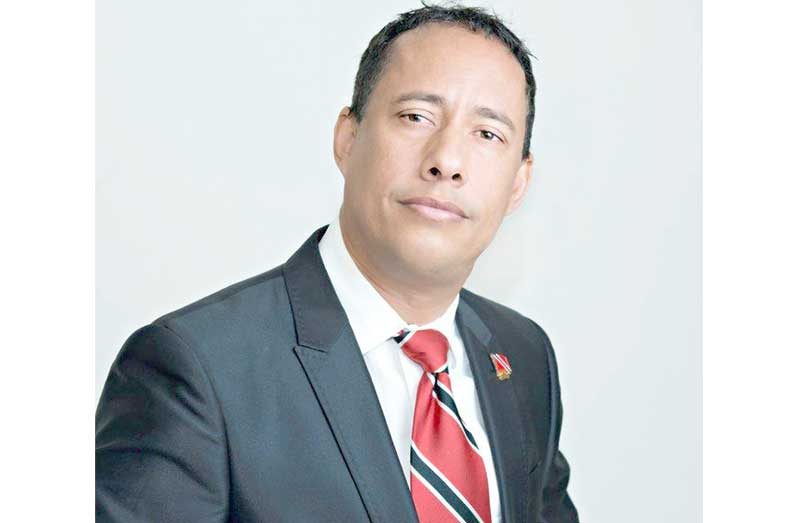–points to Venezuela’s history of provocations, disregard for international law
FORMER Trinidad and Tobago Minister of National Security who is also a former Police Commissioner, Gary Griffith, has dismissed attempts by the Venezuelan government to destabilise the Caribbean region and violate international laws.
Griffith, who made comments on several social media platforms, criticised the Nicolás Maduro regime for its aggressive actions towards Guyana and the twin-island state, highlighting the migration crisis, drug trafficking, and illegal activities that have strained resources and security there.
“This is a clear situation of years of being the aggressor and now trying to play victim. It is Trinidad and Tobago and Guyana that are the ones under threat, not Venezuela,” Griffith said.
His comments come after United States President Donald Trump announced yesterday that a second vessel, believed to be transporting narcotics leaving Venezuela, was targeted and struck by the US military, killing at least three on board.
Reports from various press engagements and statements by Venezuelan military officials have been circulating, with President Maduro and Defence Minister Vladimir Padrino López making remarks that appear to insinuate threats aimed at destabilising Guyana and Trinidad and Tobago.
“The warning issued recently by Venezuela’s defence minister against Trinidad and Tobago and Guyana is as dangerous as it is ironic. For years it has not been Trinidad and Tobago or Guyana threatening Venezuela. In fact, it has been the other way around, where the Maduro regime, their actions, have destabilised our regions and threatened both Trinidad and Tobago and Guyana in recent times,” Griffith countered, highlighting Venezuela’s continuous violation of international law, citing incidents such as the Essequibo aggression and illegal incursions into Trinidad and Tobago’s waters.
On March 1, 2025, a Venezuelan Coast Guard ship had entered Guyana’s Exclusive Economic Zone (EEZ) near oil production equipment, specifically close to the FPSO PROSPERITY.
The Venezuelan vessel claimed the area was “disputed international waters” and made threatening radio communications to FPSOs operating there. This incursion was a serious breach of international law and has heightened regional tensions.
The incident drew widespread condemnation from the international community, including the Organization of American States (OAS), CARICOM, the United States, France, and other partners.
Those partners have reaffirmed their support for Guyana’s sovereignty and condemned Venezuela’s actions as illegal and provocative.
The U.S. has warned of consequences for Venezuela if provocations continued.
Griffith strongly condemned Venezuela’s false accusations and inflammatory rhetoric, emphasising the need for diplomacy and regional co-operation to maintain peace.
He also criticised irresponsible comments from unqualified individuals, advocating for statesmanship and dialogue to address the situation.
INTERNATIONAL COURT OF JUSTICE
Back in August, the International Court of Justice (ICJ) had notified the Government of Guyana that Venezuela had filed its rejoinder in the ongoing case concerning the Arbitral Award of October 3, 1899.
The filing, made on Monday, August 11, 2025, comes within the deadline set by the court’s order of June 14, 2024. The rejoinder responds to Guyana’s reply, which was submitted in December 2024, and marks the conclusion of the written phase of the proceedings.
This was welcomed by the Guyana government.
According to Guyana’s Ministry of Foreign Affairs and International Cooperation, the ICJ will, upon its return from summer recess schedule oral hearings on the merits of the case.
These hearings will be followed by the court’s deliberations and the delivery of its final judgment. The decision, once issued, will be binding on both Guyana and Venezuela under international law.
The case before the ICJ concerns Venezuela’s contention that the 1899 Arbitral Award, which established the boundary between the two countries, is null and void. Guyana has maintained that the award is a valid and binding legal instrument that settled the border over a century ago.
In accordance with the Geneva Agreement, Guyana and Venezuela engaged in over two decades of Good Offices efforts on the border controversy under United Nations’ (UN) Secretaries-General auspices, in an attempt to find a peaceful diplomatic resolution.
However, on January 30, 2018, after the process failed to produce meaningful progress, the then UN Secretary-General concluded that the Good Offices initiative had run its course.
In accordance with Article IV (2) of the Geneva Agreement, he exercised his authority and selected judicial settlement by the ICJ as the next method of resolution.
Guyana, in accordance with the Secretary-General’s decision, filed an application with the ICJ on March 29, 2018, seeking a ruling on the validity of the 1899 Arbitral Award and the boundary it had established.
Venezuela, rather than co-operate, challenged the court’s jurisdiction, once again arguing that the Geneva Agreement did not allow for judicial proceedings.
After receiving extensive written submissions from both parties and holding oral hearings in June 2020, the court issued its judgment on jurisdiction on December 18, 2020.
The court found that “Guyana and Venezuela mutually conferred upon the Secretary-General the authority to choose the means of settlement of the controversy, and on 30th January, 2018, the Secretary-General exercised this authority by choosing judicial settlement before the Court.”
The court affirmed its jurisdiction to hear Guyana’s application regarding the validity of the Arbitral Award and the related issue of the definitive settlement of the land-boundary controversy between Guyana and Venezuela.



.jpg)








